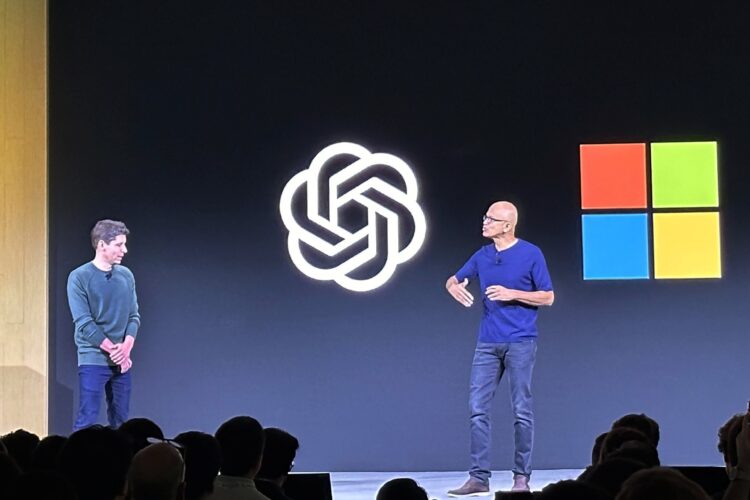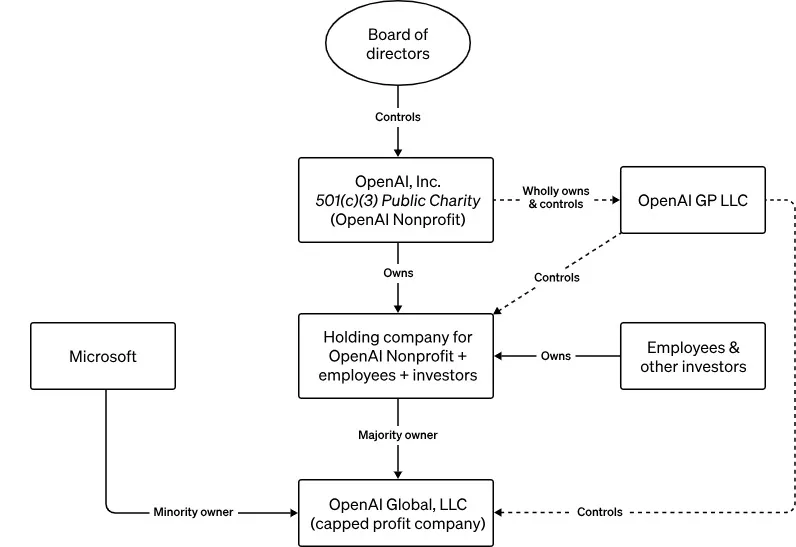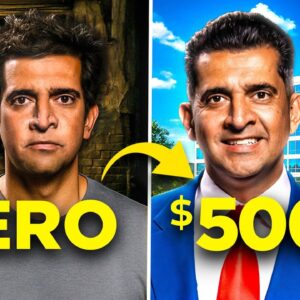Tech giant Microsoft has resigned from the board of ChatGPT maker OpenAI following increased pressure from federal anti-monopoly regulators. While Microsoft claimed in its memo that OpenAI is no longer in need of its help after patching up its governance structure, observers are pointing to American and European governments reviewing the companies’ relationship as the cause behind the departure. It is not yet clear if this resignation will be enough to avoid an antitrust suit.
“We appreciate the support shown by OpenAI leadership and the OpenAI board as we made this decision,” the letter said. Microsoft went on to say that it was resigning “effective immediately” from its board position as an “observer.”
BREAKING: Microsoft is quitting the board of OpenAI amid growing anti-trust scrutiny
— The Spectator Index (@spectatorindex) July 10, 2024
“Over the past eight months we have witnessed significant progress by the newly formed board and are confident in the company’s direction,” Microsoft went on. “Given all of this we no longer believe our limited role as an observer is necessary.”
OpenAI replied, noting it was not the end: “We are grateful to Microsoft for voicing confidence in the Board and the direction of the company, and we look forward to continuing our successful partnership.”
Learn more about the 2024 Vault Conference and secure your ticket today!
Last month, regulators with the European Union (EU) would be reviewing the “pact” between Microsoft and OpenAI to see if it violates its antitrust regulations. The US Federal Trade Commission (FTC) as well as the United Kingdom’s counterpart of the same agency have already been reviewing it.
Alex Haffner of antitrust law firm Fladgate said it is not a mystery as to why Microsoft pulled away now. “It is clear that regulators are very much focused on the complex web of inter-relationships that Big Tech has created with AI providers, hence the need for Microsoft and others to carefully consider how they structure these arrangements going forward,” he said.
While Microsoft has resigned from the board, antitrust regulators may still force them to fully and completely divest from the nascent AI developer. It has roughly $13 billion invested in OpenAI, per one estimate.
According to reports, Microsoft is entitled to 49 percent of the proceeds from OpenAI’s for-profit wing. While that is not equivalent to ownership, it would certainly impair Microsoft—especially its future profits—if it was forced to return this “entitlement.”
Three weeks ago, a report broke that Sam Altman is looking to transform OpenAI into a for-profit firm. This would mean it would not be controlled by the nonprofit board of directors and would be free to pursue any technological powers to meet investor demands.
The source said they heard Altman suggesting the firm could become a for-profit benefit corporation (b-corp), which is the model used by Anthropic and xAI.
Now, OpenAI is saying it will follow a new approach in “informing and engaging key strategic partners” such as Microsoft, Apple, Thrive Capital, and Khosla Ventures. It will be holding frequent meetings with shareholders to keep them abreast of their latest developments, and aims to work closer with them on delivering both “safety and security.”
 Shane Devine is a writer covering politics and business for VT and a regular guest on The Unusual Suspects. Follow Shane’s work here.
Shane Devine is a writer covering politics and business for VT and a regular guest on The Unusual Suspects. Follow Shane’s work here.



















Add comment